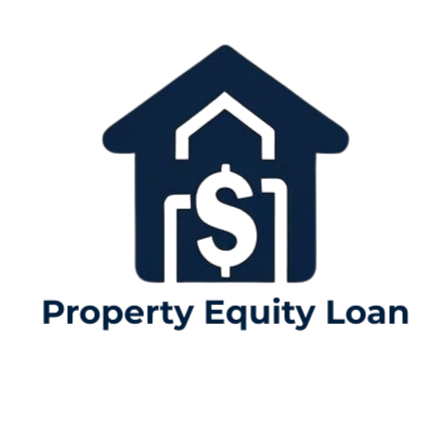Surprising fact: many Singapore owners can finance up to 80% of an asset’s value — a move that changes cash flow plans overnight.
We’ll explain commercial property interest rates so you can choose the right commercial property loan with real confidence.
What you’ll learn: how fixed-rate promotions compare with SORA‑pegged options, typical loan tenures from 1 to 25 years, and how banks set the benchmark plus their spread. This clear information helps business owners compare offers beyond headline figures.
Selected lenders also provide legal and valuation subsidies, and limited processing fee discounts when you apply online. You can use simple tools to estimate monthly payments before you apply, which makes planning easier.
Ready to explore tailored options? Whatsapp us for a discovery session and we’ll help you compare the market and select what fits your needs.
Key Takeaways
- Up to 80% financing is common; terms range from 1 to 25 years.
- Fixed periods give certainty; SORA‑pegged rates move with the market.
- Compare benchmark, bank spread, and lock‑in to assess real benefits.
- Lenders may offer fee subsidies and valuation help for online applicants.
- Use repayment tools to model cash flow before you commit.
- Whatsapp us for a discovery session to get help support tailored to your goals.
Singapore market snapshot: how business property loan rates work today
Singapore lenders now anchor most business lending to the 3‑month compounded SORA. MAS publishes this by 9am the next business day, and banks add a spread to create your effective property loan rate.
Two main package types are common: short fixed promotions for certainty, and SORA‑pegged packages that follow market moves and avoid future repapering.
What drives pricing now: SORA, fixed promos and spreads
The spread is the bank’s margin above SORA and varies by loan amount, collateral type, and borrower profile.
LTV and tenure at a glance
Banks typically offer up to 80% financing with repayment periods from 1 to 25 years. In practice, operating companies may access up to 90% and tenures that extend to 30 years, subject to assessment.
Who benefits: operating vs investment-holding firms
Operating companies often secure higher loan amounts and sharper pricing. Investment‑holding firms retain corporate access but can face slightly wider spreads.
- Look beyond headline price: check fees, lock‑in, and valuation approach.
- Floating packages update with SORA the next business day, so they react quickly to market moves.
Want a clear comparison across banks and packages? Whatsapp us for a discovery session and we’ll help align a solution to your cash‑flow and working capital needs.
commercial property interest rates: fixed vs SORA-pegged and what it means for your business
Your choice of a fixed or SORA-pegged loan shapes monthly cost certainty and long-term exposure to market moves.
Breaking down the total rate: the benchmark is the 3‑month SORA, the bank adds a spread, and fees or subsidies change the all‑in price. Fixed packages set a rate for the fixed window; afterwards the loan usually reverts to a spread above SORA or an internal board rate.
Practical examples and what to watch
- Floating sample: 3M SORA + 0.70% for 24 months.
- Fixed sample: 1.90%–2.10% for the first 2 years.
- Lock‑in period: typically 2 years; early exit may cost ~1.5% of outstanding loan.
- Thereafter: spreads can rise to SORA + 2.00%–3.00% or BOARD‑linked levels above 6.50%.
| Feature | Typical example | Impact | Notes |
|---|---|---|---|
| Benchmark | 3‑month SORA | Determines floating repayments | Published by MAS the next business day |
| Initial pricing | SORA+0.70% or fixed 1.90%–2.10% | Predictability vs market tracking | Subject to bank assessment |
| Fees & subsidies | $500–$1,000 processing; legal/valuation caps | Affects all‑in price | Ask about subsidies when you apply |
| Exit risk | 1.5% redemption penalty in lock‑in | Can raise exit cost | Avoid long lock‑ins if sale likely |
If you want a clear comparison across banks and packages, see our best rates comparison or Whatsapp us for a discovery session and we’ll benchmark options across corporate banking partners to match your working capital and loan amount needs.
Choose the right commercial property loan package and get support from a relationship manager
Selecting the best loan package starts with a clear view of your cash-flow needs and exit timeline. That helps you pick between predictable repayments and market-linked savings.
Package types compared: fixed for stability vs floating for market-linked savings
Fixed packages give steady monthly payments during the initial term. They suit businesses that value certainty for budgeting.
Floating or SORA‑pegged options track market moves and can deliver savings when rates fall. A relationship manager will model scenarios for you.
After lock-in matters: avoiding high thereafter spreads and BOARD pitfalls
Avoid packages with steep thereafter spreads or opaque BOARD links. These can raise your price once the initial window ends.
From application to approval: online submission, conditional offer, and next business day SORA updates
Apply online, notify guarantors, and expect a call from your relationship manager with a conditional offer. Track progress and sign the final terms once approved.
What to prepare: property value, option to purchase, recent bank and financial statements
- Address, floor size, tenure, and get property value or valuation.
- Option to purchase and latest 2 years of financial statements.
- Recent 3 months bank statements (some banks may pull these directly).
Promos: submit online by 30 September 2025 to enjoy processing fee discounts and possible legal or valuation subsidies. For hands‑on help support and tailored terms, Whatsapp us for a discovery session.
Conclusion
Make financing decisions that match your business timeline and protect cash flow.
Compare fixed windows and SORA‑pegged options, check the lock‑in period and the thereafter price over the years you plan to hold the asset.
Focus on the loan amount, tenure and repayment profile that keep your business resilient. Use clear market references like MAS‑published SORA (updated each business day) to avoid surprises.
Timing matters: promos and fee subsidies can cut your all‑in cost more than chasing the lowest headline rate.
Need help? Whatsapp us for a discovery session and we’ll map the best commercial property loan path from application to approval.
FAQ
What affects commercial property interest rates for Singapore owners today?
Several factors drive pricing: the SORA benchmark (commonly 3M SORA), bank spreads, promotional fixed-rate offers, and fees such as arrangement or valuation charges. Market liquidity, your business credit profile, loan-to-value (LTV) and the chosen lock-in period also shape the final rate.
How does SORA-pegged pricing compare with fixed-rate packages?
A SORA-pegged loan moves with benchmark shifts, so monthly payments can fall or rise with SORA. Fixed packages give payment certainty for the fixed term and can protect you from rate spikes. Floating usually costs less initially; fixed costs more for that predictability.
What typical LTV and repayment tenures can I expect for a business property loan?
Lenders often offer up to 80%–90% financing for qualifying assets. Repayment terms range widely, commonly from 1 year to 25+ years depending on borrower type, asset class and amortization capacity.
Who benefits most from fixed vs SORA-linked loans?
Operating companies that rely on stable monthly cash flow often prefer fixed rates for predictability. Investment-holding firms or businesses with flexible cash reserves may choose SORA-linked loans to capture market-linked savings when rates fall.
What components make up the total loan rate I’ll pay?
The total includes the benchmark (e.g., 3M SORA), the bank’s spread, any promotional discounts, plus fees and charges. Lock-in terms and likelihood of a higher “after-lock-in” spread should be reviewed carefully.
What is a lock-in period and why does it matter?
A lock-in is the time you pay early-exit fees if you refinance or repay early. Shorter lock-ins give flexibility; longer ones often lower upfront pricing. Watch out for a steep rise in spreads after the lock-in ends.
How do "after lock-in" spreads and BOARD rates affect future payments?
After lock-in, the bank may apply a higher spread or a BOARD (bank’s internal reference) that increases your monthly cost. Negotiate or confirm the post-lock-in benchmark and spread before signing to avoid surprises.
What documents and valuations do lenders require for approval?
Prepare recent audited accounts or management accounts, bank statements, the property valuation or option to purchase, proof of company registration, and cashflow forecasts. Lenders may order an independent valuation and confirm property use (industrial, retail, office).
How long does approval and disbursement typically take?
Timelines vary. Many banks provide conditional offers within days after complete submission; final legal completion can take weeks. Some lenders update SORA benchmarks and pricing on the next business day, so timing can affect the final rate.
Can I lock a rate while my application is processed?
Some banks offer rate locks or rate confirmations for a short period, often for a fee or with conditions. Ask your relationship manager about lock options and how they handle SORA movements during processing.
How does the loan amount and tenancy type influence approval and terms?
Larger loan amounts and stable tenancy (long-term leases, quality tenants) often secure better spreads and longer tenures. Vacant or short-tenure assets may limit LTV and increase pricing due to higher risk.
What fees should I expect besides the stated rate?
Common fees include application/arrangement fees, valuation, legal fees, stamp duty, and possible prepayment or break fees during the lock-in. Factor these into the total cost of borrowing.
How can a relationship manager help during the loan process?
A relationship manager guides product selection, explains rate structures (fixed vs SORA), clarifies fees, speeds document collection, and negotiates terms. They provide tailored advice to align financing with your business plan.
Are there flexible repayment or working capital options within commercial loan packages?
Yes. Many packages allow tailored repayment schedules, interest-only periods, or combined facilities with working capital lines. Discuss your cashflow needs to shape a suitable package.
What should I watch for in the loan terms and conditions?
Check the effective rate after all fees, lock-in penalties, post-lock-in spreads, covenants, prepayment mechanics, and any BOARD references. Ensure covenants are realistic for your business operations.
How can I get an indicative offer quickly?
Provide the property details, recent financial statements, desired loan amount and tenure to your bank or broker. Many lenders can issue indicative pricing or a conditional offer within one business day after receiving complete information.


